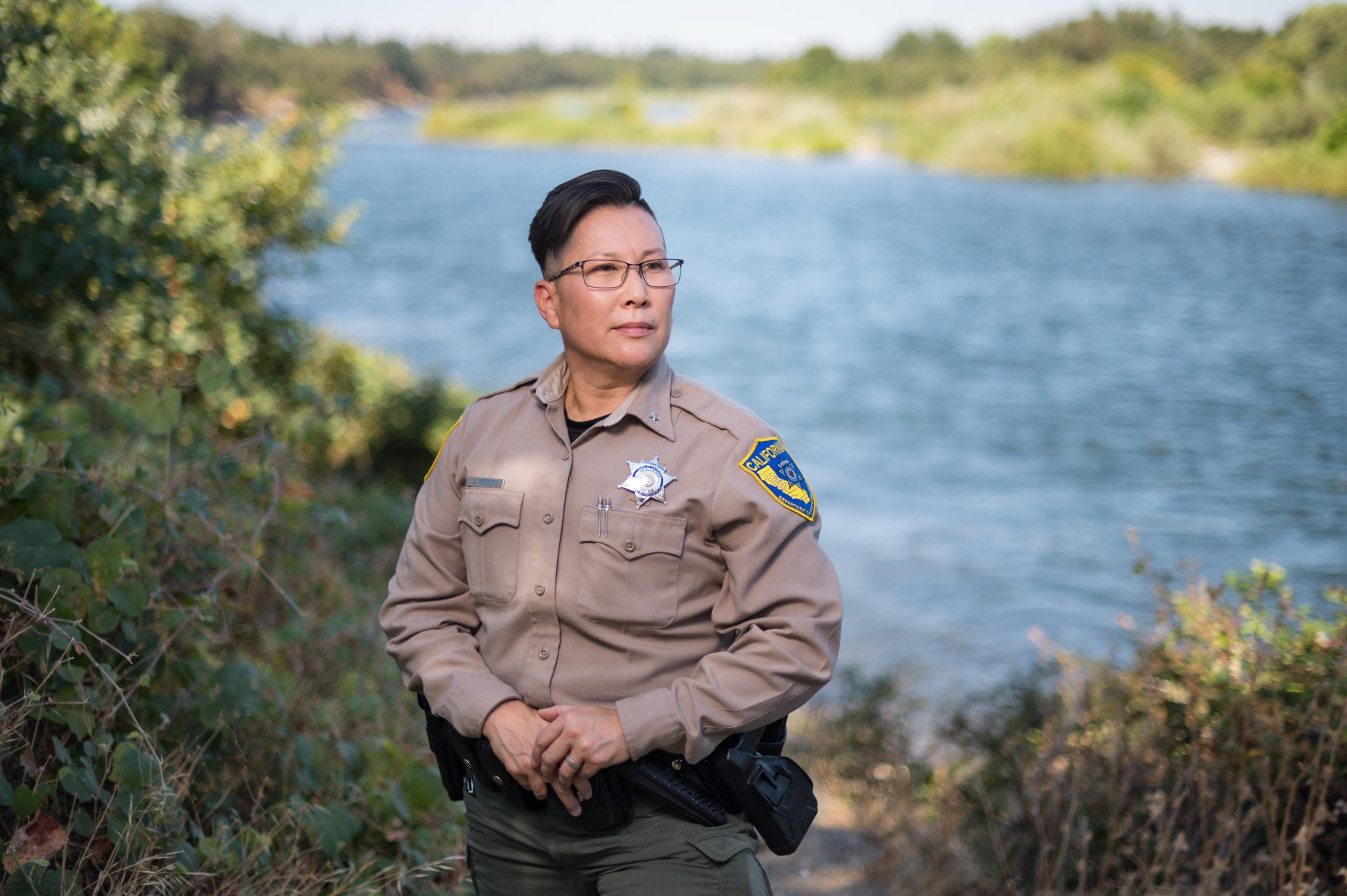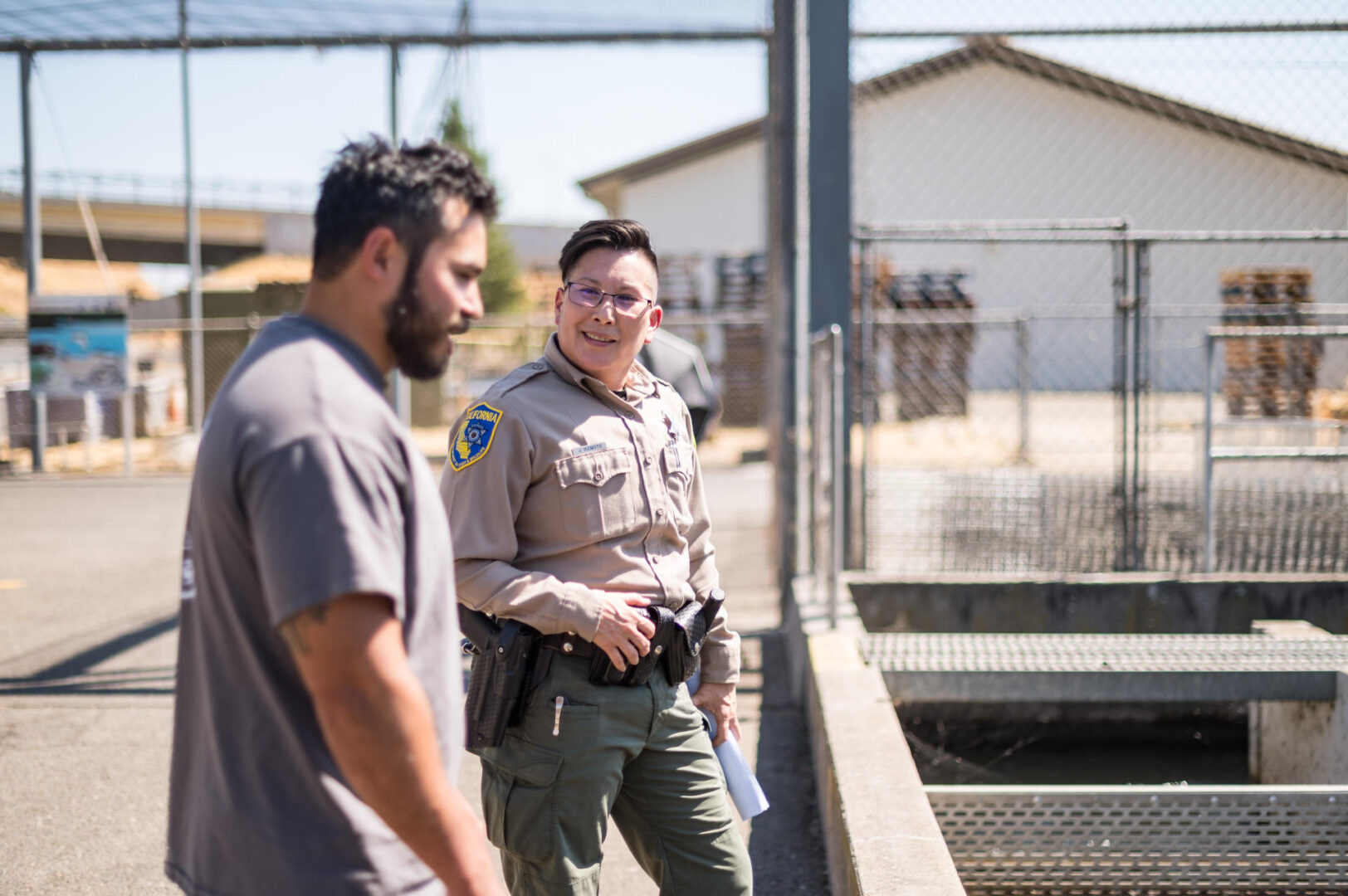To Serve and Protect Our State’s Natural Resources

“… the reason I’ve stayed in this job is my love for our natural resources and my desire to effect change.”
Jennifer Ikemoto (Biology, ’96)
A popular expression among wildlife officers holds true for Jennifer Ikemoto: she gets paid in sunrises and sunsets.
The 23-year-veteran of the California Department of Fish and Wildlife (CDFW) has also enjoyed unimpeded views of behemoth blue whales, stunningly large and sun-loving mola mola (ocean sunfish), and pods of playful dolphins, all swimming alongside her 58-foot catamaran style patrol vessel.
“I’ve seen places in California most people never get to see, but the reason I’ve stayed in this job is my love for our natural resources and my desire to effect change,” said Ikemoto (Biological Sciences, ’96).
An assistant chief for CDFW, Ikemoto oversees the agency’s Special Operations consisting of K9 and air services units, as well as undercover, wildlife trafficking, and cybercrime investigations. She has worked undercover, cracked down on abalone poachers, and led investigations into the illegal black bear gall bladder trade and the poaching of female sturgeon from the Sacramento-San Joaquin Delta. She also handled commercial fishing cases as a lieutenant and directed the Fish and Wildlife Academy during her tenure as captain.
Ikemoto began her law enforcement career as a game warden in Marin County. Her patrols have taken her all over California, monitoring commercial and recreational fishing by boat and plane, out into international waters 200 miles off the coast, and back into the Sierra Nevada mountains to check on hunters.
Her path to law enforcement became clear to her after working as a scientific aide for the CDFW. Ikemoto found that she enjoyed working in the field more than doing research in the office, and she wanted to interact with visitors to state parks. Becoming a game warden seemed like the perfect fit.
“I saw I could have the best of both worlds,” she said. “I could help conservation efforts by connecting and talking to people, using my degree, and being outdoors.”

The Northern California coast holds a special place in Ikemoto’s heart, first as the backdrop for family vacations. She later made fond memories diving the Mendocino County coast with her father and then-classmates from Chico State’s biology honor society, Omicron Theta Epsilon.
Bearing witness to how humans and climate change continue to alter California’s coastline over the past two decades drives Ikemoto to use education and her position to protect and preserve the state’s coastal habitats.
“I’ve seen the decline of our natural resources,” she said. “I understand why we need regulations and enforcement.
“Being a wildlife officer allows me to put my biology degree to work while satisfying my enjoyment of being outdoors and making a difference.”


